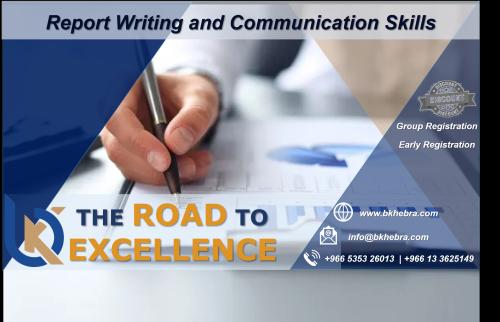| Training Code | Date | Duration | Venue | Fees |
|---|---|---|---|---|
| Keep following, we are updating our training schedules. | ||||

Reports are a tool to convey crucial information in a
structured, & a less time-consuming way. Many people find writing
difficult. Some will do anything to avoid writing reports. This could largely
be due to a bad approach. While report writing is one of the most important
tools of business success nowadays. The keys to good report writing are
understanding its objective, your target audience, types of reporting, when to
use them, the structure of writing a report, and the importance and types of
graphical representation.
This
4-days B’Khebra
Report Writing and Communication Skills training program will give your
organization effective practical tools and techniques to help you enhance your
interpersonal and business communication through verbal and effective report
writing techniques. In addition, this will allow participants to well recognize
cross-cultural communication and the newest technological influences in
communication, build confidence, learn effective questioning skills and active
listening skills that will enhance communication channels within the
organization. This course aims to take
the participants to that advanced level of report writing by helping them focus
on each little detail and master the reporting writing keys.
* Professionals who regularly write reports for an
external or internal audience
* Technical experts who are required to write reports for
a non-expert audience
* Anyone whose role has changed to include more report
writing
On successful completion of this training course, BK’s Certificate with eligible Continuing Professional Education credits (CPE), will be awarded to the delegates , one CPE credit is granted per 50 minutes of attendance.